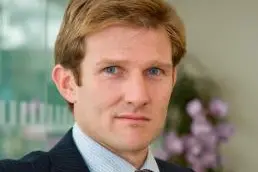PHOTO
Experts from PA Consulting Group believe the Gulf's love of high-tech gadgets can change lifestyles to improve health and wellbeing
Dubai, UAE, 22 February 2015: The Gulf region's insatiable appetite for the latest gadgets, high-tech smartphones and constant social media connectivity is presenting a wealth of opportunities for 'telehealth' - wearable technology which monitors wellbeing and fitness levels.
The prevalence of diabetes and other heart-related illnesses continues to grow at an accelerated pace, affecting one in 10 people in the Gulf states - almost 24% in Saudi Arabia, 23.1% in Kuwait, 21.9% in Bahrain, 19.8% in Qatar and 19% in UAE according to latest figures from the International Diabetes Federation - yet public health officials and government authorities continue to rely on traditional awareness campaigns to slow the rates.
Philip Rice, healthcare expert at PA Consulting Group believes, however, that mobile technology can make a viable difference to the health and wellbeing of people specifically in the Gulf. The relatively small populations within GCC states combined with the low cost of electronic health record (EHR) apps means that connecting residents to their own health trackers is achievable, easy to implement and maintain.
"Our research suggests that more than 300 companies worldwide are devoted to 'digital health' and there has been a massive rise in those displaying wearable technology," said Philip Rice. "It is clear that this technology holds a great deal of potential for the healthcare industry, and in the GCC, we see that the traditional approaches to health awareness are not working."
PA Consulting is experienced in developing national level strategies to address issues around patient and public health needs. The Group recently applied a healthcare ecosystem analytics and disease management design methodology to help Qatar design a National Diabetes Strategy and Implementation Plan.
The research evaluated international best practises in diabetes management, current situational analyses, as well as population statistics for Qatari and non-Qatari populations.
Rice added: "Innovative approaches which leverage technology and consider individual patient journeys would work especially well in this part of the world. Mobile technology enables the constant flow of supportive education, referral and follow-up reminders, and access to personal health information. This empowers the patient to make his or her own decisions, and see their successes in their modified, changed behaviour patterns."
"Our work in Qatar saw us comprehensively address prevention, awareness, patient empowerment, clinical pathways and referrals, workforce capability and capacity building, information management, technology innovations and research.
"Establishing technology platforms to register and connect patients to their healthcare providers and researchers is also an important way to increasing the patient-centric engagement and ensuring a consistent stream of communication. We are already seeing innovative products come onto the market such as contact lenses and tattoos which capture blood glucose levels, ingestible pills which measure drug compliance, and smart socks that detect pressure and potential foot ulcers or areas losing sensitivity."
Commentators worldwide suggest that wearable technology is the 'next big thing', with some eight million people in the UK already using some form of health-related devices such as heart rate and activity monitors. With the launch of the new iPhone 6, an instant hit in the GCC, came the health kit platform which collates fitness information and enables the integration of nutrition, medical records and pharmaceutical data, instantly available at one's fingertips.
Meanwhile, Transparency Market Research estimates that the global wearable technology market was worth US$750 million in 2012, growing at a Compound Annual Growth Rate of 40% to US$5.8 billion in 2018, of which over US$2 billion will be health and wellness related.
PA Consulting Group has been operating in the Gulf region for the last 30 years, successfully delivering more than 150 projects in 13 Middle Eastern countries, across sectors including financial services, transport, energy, government, defence and security, healthcare, education and manufacturing.
About PA Consulting Group
We are an employee-owned firm of over 2,500 people, operating globally from offices across North America, Europe, the Nordics, the Gulf and Asia Pacific. We are experts in energy, financial services, life sciences and healthcare, manufacturing, government and public services, defence and security, telecommunications, transport and logistics.
Our deep industry knowledge together with skills in management consulting, technology and innovation allows us to challenge conventional thinking and deliver exceptional results with lasting impact.
www.paconsulting.com
For further press information please contact:
Lindsay Johnston / Katie Johnston
Total Communications
Tel: + 971 4 4281502
Email: lindsay@totalcompr.ae, katie@totalcompr.ae
© Press Release 2015




















